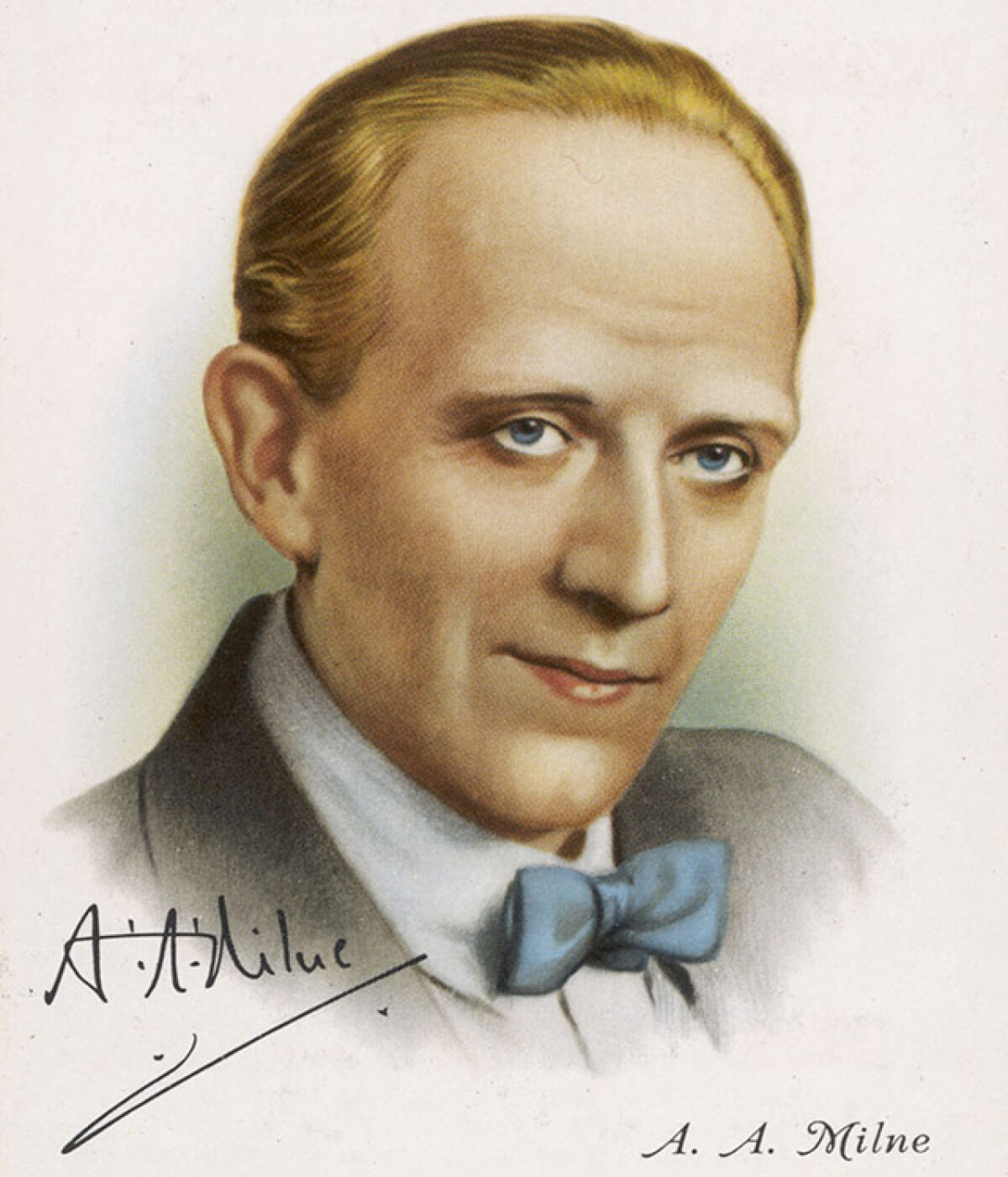Alan Alexander Milne
A.A. Milne, in full Alan Alexander Milne, (born January 18, 1882, London, England - died January 31, 1956, Hartfield, Sussex), English humorist, the originator of the immensely popular stories of Christopher Robin and his toy bear, Winnie-the- Pooh.
Milne’s father ran a private school, where one of the boy’s teachers was a young H.G.Wells. Milne went on to attend Westminster School, London, and Trinity College, Cambridge, the latter on a mathematics scholarship. While at Cambridge, he edited and wrote for Granta magazine (then called The Granta, for Cambridge’s other river). He took a degree in mathematics in 1903 and thereafter moved to London to make a living as a freelance writer. In 1906 he joined the staff of Punch (where he worked until 1914), writing humorous verse and whimsical essays. He was married in 1913, and in 1915, though a pacifist, he joined the service during World War I as a signalling officer. He served briefly in France, but he became ill and was sent home. He was discharged in 1919.
When he was not rehired by Punch, Milne turned his attention to playwriting. He achieved considerable success with a series of light comedies, including Mr. Pim Passes By (1921) and Michael and Mary (1930). Milne also wrote one memorable detective novel, The Red House Mystery (1922), and a children’s play, Make-Believe (1918), before stumbling upon his true literary métier with some verses written for his son, Christopher Robin. These grew into the collections When We Were Very Young (1924) and Now We Are Six (1927). These remain classics of light verse for children.
Despite Milne’s success as a playwright, only these verses and his two sets of stories about the adventures of Christopher Robin and his toy animals—Pooh, Piglet, Tigger, Kangaroo, Rabbit, Owl, and Eeyore—as told in Winnie-the-Pooh (1926) and The House at Pooh Corner (1928) endured into the 21st century. Illustrations by Ernest Shepard added to their considerable charm. In 1929 Milne adapted another children’s classic, The Wind in the Willows, by Kenneth Grahame, for the stage as Toad of Toad Hall. A decade later he wrote his autobiography, It’s Too Late Now.
Share:









